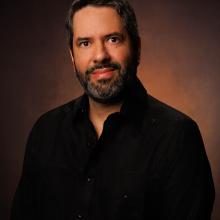How did you choose developmental science as a career?
I became interested in attachment theory while conducting research with violent men in Panama, and I met Dr. Alan Sroufe in Mexico City during a training on the Adult Attachment Interview in 2007. He encouraged me to apply for a Ph.D. in Child Psychology at the Institute of Child Development at the University of Minnesota, and I did, joining the program in 2009.
Is there a mentor or mentors who have been instrumental to your career path so far, and, if so, who and how?
Dr. Cynthia García Coll is my role model and my inspiration. She challenges me to do better and to be better. She accepts me and supports my decisions. She has shown me that we can be authentic, committed to serving our communities, and also strive to pursue a career in academia.
What advice would you give to a prospective graduate student thinking about beginning their Ph.D. studies in the developmental science field?
Choose mentors who believe in your potential, who allow you to imagine possibilities, and who can dedicate time to you. Building a team of mentors, in your department but also outside of it, is very helpful because they can provide different perspectives, help you build different skills, and challenge you in different ways.
What is your best SRCD memory?
Seeing my friends and colleagues Drs. Enrique Neblett, Fatima Tuba, Na Zhang, Fanita Tyrell, Michelle Brown, and many others in person at the 2023 Biennial in Salt Lake City, Utah. It was my first conference since the COVID-19 pandemic started and it was wonderful to see them again, spend time together, and catch up.
Why did you join the Latinx Caucus and how does it facilitate connection among members all year long?
I joined the Latinx Caucus to be in community with my Latinx friends and colleagues, to learn from the early career scholars who are transforming the field with their research, and to continue to be mentored by my senior colleagues.
